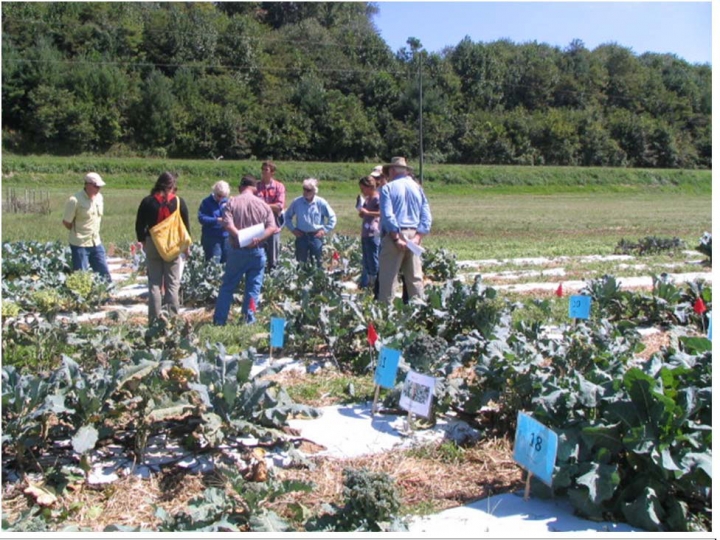Shade-covered high tunnels for summer production of lettuce and leafy greens
Most varieties of greens do not grow throughout the market season in the Midwest because of the 85-degree-plus weather, which persists for much of July, August and September. High temperatures (and resulting problems with dormancy and rapid drying of soil) result in poor crop establishment, and bitterness and bolting of lettuce. Other leafy greens are severely affected by high insect populations. The ability to extend the greens season through the summer heat would benefit local growers while meeting a consumer need at peak market times.

 There is high demand for organic broccoli in the Southeast, as shown in a 2013 market survey by Carolina Farm Stewardship Association, which revealed that broccoli is one of the top organic produce items in short supply. Broccoli can be produced most anywhere in the spring and fall, but summer production is limited to cooler growing areas.
There is high demand for organic broccoli in the Southeast, as shown in a 2013 market survey by Carolina Farm Stewardship Association, which revealed that broccoli is one of the top organic produce items in short supply. Broccoli can be produced most anywhere in the spring and fall, but summer production is limited to cooler growing areas.